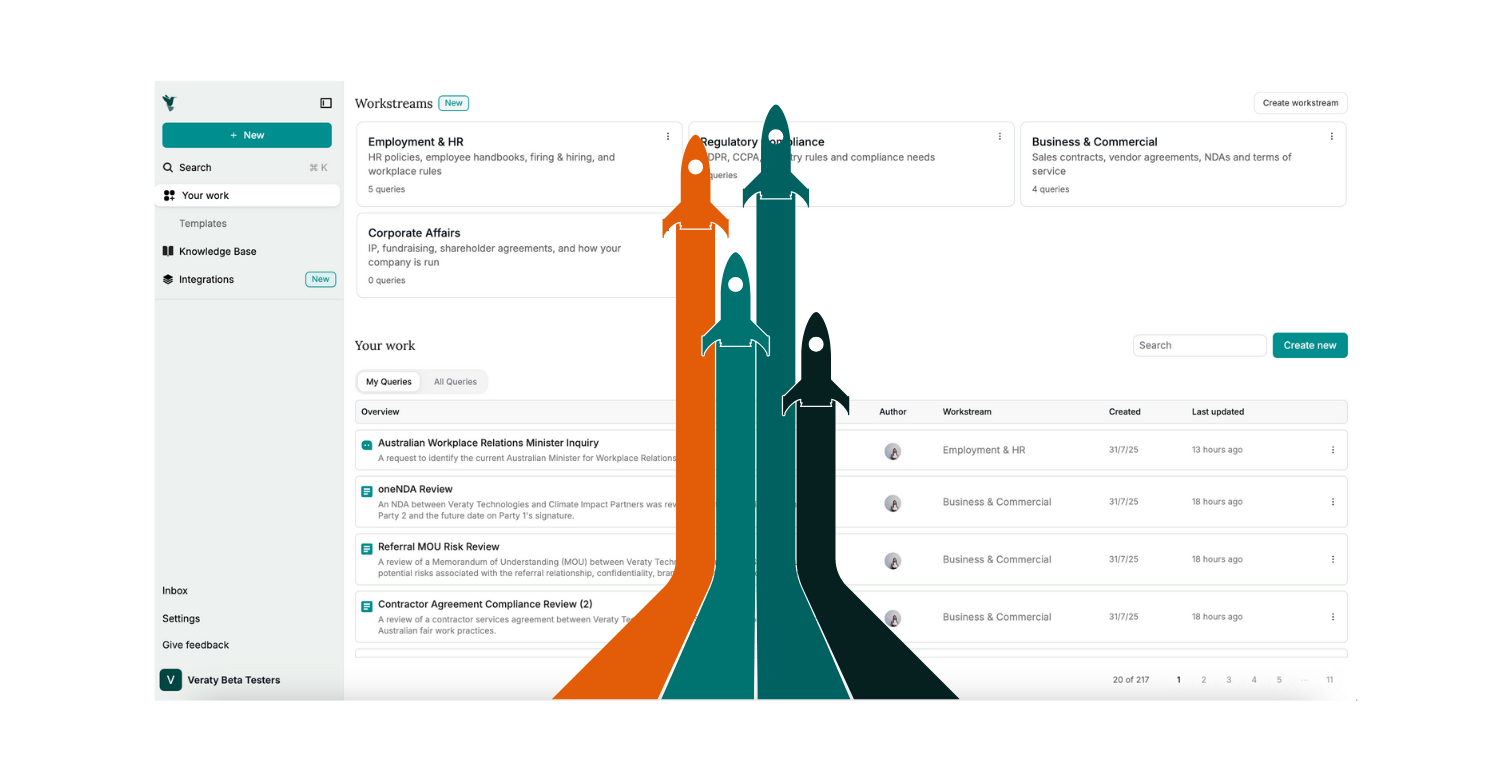You're not a lawyer, but you're doing legal work. Here's a better way.

If you're leading operations, finance, or strategy at a small or mid-sized business, you’ve likely found yourself handling legal work—whether or not you planned to.
Drafting contracts, reviewing policies, responding to due diligence requests, and managing compliance tasks have become part of your day-to-day. Not because you’re a lawyer, but because the business needs it done, and there’s no legal team to do it.
This is a reality for thousands of growing companies. But there’s a smarter, safer, and more scalable way forward.
Legal Responsibilities Are Increasing—Even Without a Legal Team
For companies with fewer than 200 employees, legal tasks often sit with the CEO, COO, or CFO. According to the Association of Corporate Counsel, the majority of internal legal work at this stage is managed by non-lawyers.
This includes:
- Reviewing, negotiating, and drafting contracts
- Creating policies to meet data protection or employment obligations
- Responding to vendor or investor compliance requests
- Managing risk across documents, systems, and teams
While these responsibilities are essential, they often take time away from core business priorities—and carry risk if done without the right expertise or infrastructure.
Why Common Workarounds Fall Short
To avoid high legal costs, many companies turn to free templates, legal marketplaces, or tools like ChatGPT. While these can offer convenience, they rarely deliver the level of accuracy, reliability, or context that legal work requires.
The challenges are familiar:
- Templates aren’t tailored to your specific business, industry, or risk profile.
- AI tools like ChatGPT lack safeguards and may generate incorrect or unverifiable content.
- There’s no consistent system to manage approvals, obligations, or compliance across teams.
This patchwork approach can result in inconsistent documents, delayed deals, or exposure to regulatory fines. Legal risk is being carried silently by people who aren’t trained to spot it.
The True Cost of Improvised Legal Operations
When legal work is handled manually, without structure or support, it impacts the business in three key ways:
- Slower growth – Contract or compliance issues delay sales and partnerships.
- Increased risk – Errors or oversights can lead to audits, penalties, or disputes.
- Internal strain – Teams spend valuable time on tasks outside their expertise.
Hiring a full-time in-house lawyer isn’t always realistic for companies in the early stages. But ignoring legal work—or treating it as an afterthought—creates real operational and financial consequences.
Veraty: An In-House Legal Team, Delivered Through AI
Veraty is an AI platform designed to support non-legal teams with the legal workflows they manage every day. It acts like an in-house lawyer—understanding your business, managing legal data, and executing tasks with accuracy and speed.
With Veraty, you can:
- Draft tailored contracts, policies, and advice in seconds
- Review and complete due diligence and compliance tasks
- Automatically manage your legal documents and obligations
- Integrate legal workflows with tools your team already uses (e.g. HubSpot, Notion, Xero)
Veraty’s AI agents are built specifically for legal operations, with auditability and control at their core. Unlike generic AI tools, Veraty understands how legal work fits into your broader operations—and executes accordingly.
Move Forward with Confidence
Legal work isn’t going away—and you shouldn’t have to navigate it alone. Veraty enables growing companies to handle legal with the same professionalism and consistency as a mature in-house team, without the overhead.
Whether you’re responding to a compliance request, reviewing a new contract, or managing internal policies, Veraty helps you get it right—efficiently and securely.
👉 Start your free trial to see how Veraty can take legal work off your plate, and help your team stay compliant, close deals faster, and reduce risk.

.avif)

.png)

.svg)